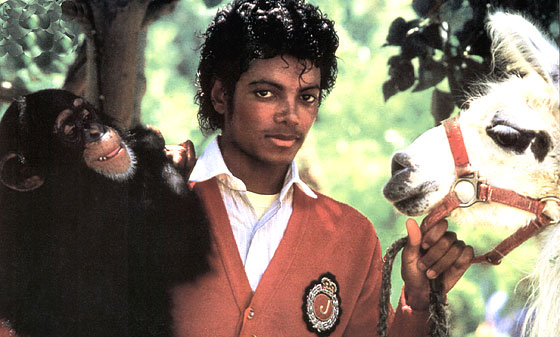
A revealing and undoubtedly controversial report in this week’s Economist, “Purification By Pain: The Mascochism Tango,” looking at the relationship between guilt and pain. Turns out there is one! Go figure:
The idea that experiencing pain reduces feelings of guilt has never been put to a proper scientific test. To try to correct that, Brock Bastian of the University of Queensland, in Australia, recruited a group of undergraduates for what he told them was a study of mental acuity.
——————
Dr Bastian reports in Psychological Science that those who wrote about immoral behaviour exposed themselves to the ice for an average of 86.7 seconds whereas those who had written about everyday experiences exposed themselves for an average of only 64.4. The guilty, then, either sought pain out or were inured to it. That they sought it out is suggested by the pain ratings people reported. Those who had written about immoral behaviour rated the ice-bucket experience at an average of 2.8 on the pain scale. The others rated it at 1.9. (Warm water was rated 0.1 by those who experienced it.)
Furthermore, the pain was, indeed, cathartic. Those who had been primed to feel guilty and who were subjected to the ice bucket showed initial and follow-up guilt scores averaging 2.5 and 1.1 respectively. By contrast, the “non-guilty” participants who had been subjected to the ice bucket showed scores averaging 1.3 and 1.2—almost no difference, and almost identical to the post-catharsis scores of the “guilty”. The third group, the guilt-primed participants who had been exposed to the warm bucket and paper clips, showed scores averaging 2.2 and 1.5. That was a drop, but not to the guilt-free level enjoyed by those who had undergone trial by ice.
Guilt, then, seems to behave in the laboratory as theologians have long claimed it should. It has a powerful effect on willingness to tolerate pain. And it can be assuaged by such pain. Atonement hurts. But it seems to work—on Earth at least.
Can’t help but remind a person of the following quote from Grace in Practice:
“Something  must be done about guilt. Everyone knows this from their own experience. There has to be some relief for remorse, whether personal or collective. You have to “Get the monkey off your back,”… Atonement provides this relief… We all wish that the innocent had not had to die for the guilty. We wish that a different road, a road less traveled in scars, had been taken. But we have been told that this was the necessary way by which God’s law and God’s grace would be resolved. It had to be resolved through a guilt-transfer, making it “possible” – the idea is almost beyond maintaining – for God to give the full scholarship to the candidate least qualified to receive it.” (p. 115-116)
must be done about guilt. Everyone knows this from their own experience. There has to be some relief for remorse, whether personal or collective. You have to “Get the monkey off your back,”… Atonement provides this relief… We all wish that the innocent had not had to die for the guilty. We wish that a different road, a road less traveled in scars, had been taken. But we have been told that this was the necessary way by which God’s law and God’s grace would be resolved. It had to be resolved through a guilt-transfer, making it “possible” – the idea is almost beyond maintaining – for God to give the full scholarship to the candidate least qualified to receive it.” (p. 115-116)

COMMENTS
7 responses to “The Science of Atonement”
Leave a Reply














This is a very interesting and poignant study.
I thought of Maugham's novel "Christmas Holiday" (1938), in which the heroine understands herself to be atoning for someone else's crime, and therefore reasons to herself, the more pain I can experience, the better.
The tragedy of it is that she puts the whole weight of the thing, the other person's dark deed, on herself.
You just want to speak to her, and tell her of Another.
My recent experience is with people who have lived in the fundamentalist environment and have come away rejecting Christ, and rejecting the idea that there is guilt at all. Can you help someone to see 'another' when they have rejected the need completely in the face of the demands they have faced? They don't want to hear about a Saviour, they see the concept as a condemnation that comes from the fundamentalist, controlling hypocrites that they have scrambled to escape from.
I guess I feel a lot of sympathy for the syndrome you are describing — a rejection of the very concept of guilt, based upon controlling personal backgrounds that were tied up with religion. I'll bet there are hundreds of thousands of such rejectors.
The question I want to ask at this point is,
How did Christianity or Christians somehow "consent" or contribute to a situation that would fire up such an explosive rejection on the part of persons brought up in it?
Sometimes I think the whole Christian Church could take a collective vow of silence for a few decades and open up shop again — Grand Opening with Free Prizes! — in the year 2050.
I agree Paul, my initial reaction is to be defensive of Christ…my own insecurity really. I would say on a whole, that we as Christianity/Christians have contributed to this by not presenting the gospel of Christ as providing freedom and relief from judgement and criticism. The ironic thing, is that the people I see rejecting Christ are declaring their own freedom from law and judgement apart from Christ…they know what they want and need, which is more than Christianity has apparently offered them. I do think there is a need to listen and just shut up for a while:) Thanks!
"They know what they want and need, which is more than Christianity has apparently offered them" — that is such a good way of putting it!
As I read your words, it just flashed into my mind, like thunder, some lines from the old Yardbirds song, "Over Under Sideways Down": "Everything they said was wrong/Is what I want to be".
Somehow the Christian Church has become lined up with "Everything they said was wrong".
It's a very severe syndrome, and we, meaning Christians, are as much to blame as anyone. There's nothing wrong with a little rue on our part.